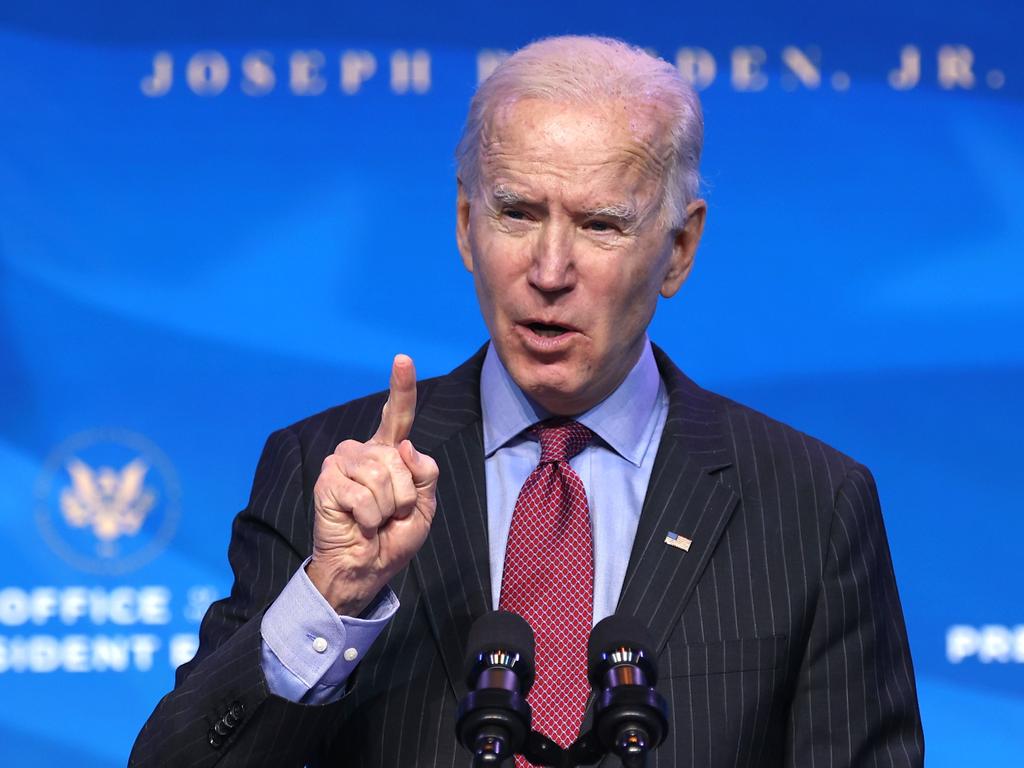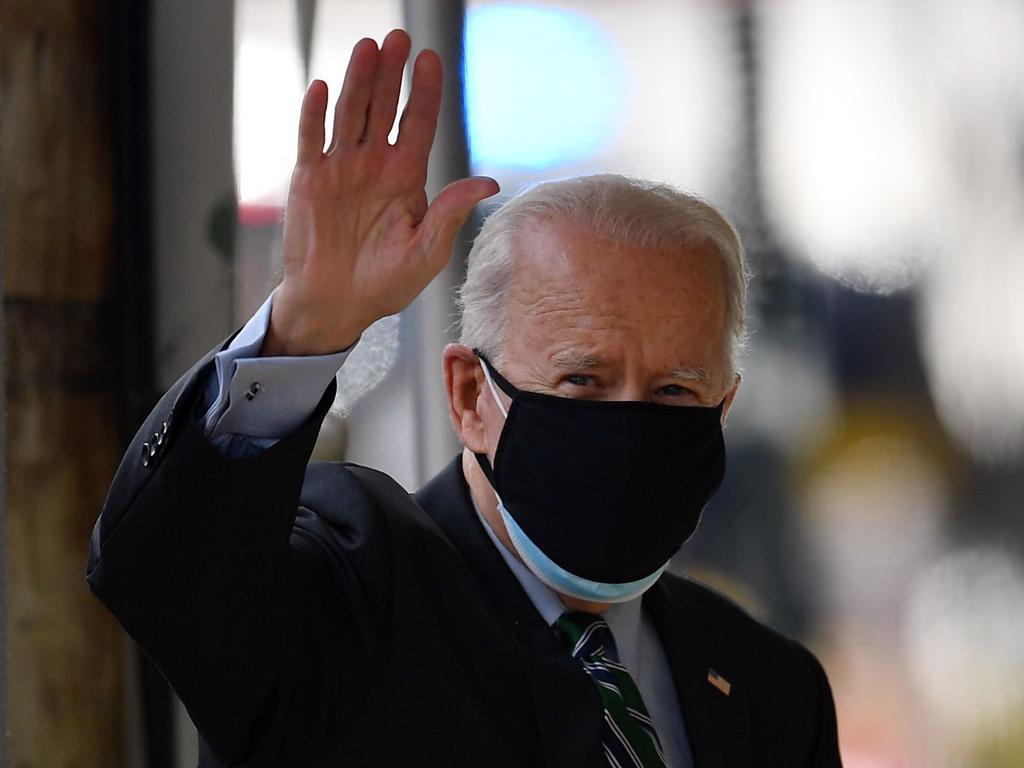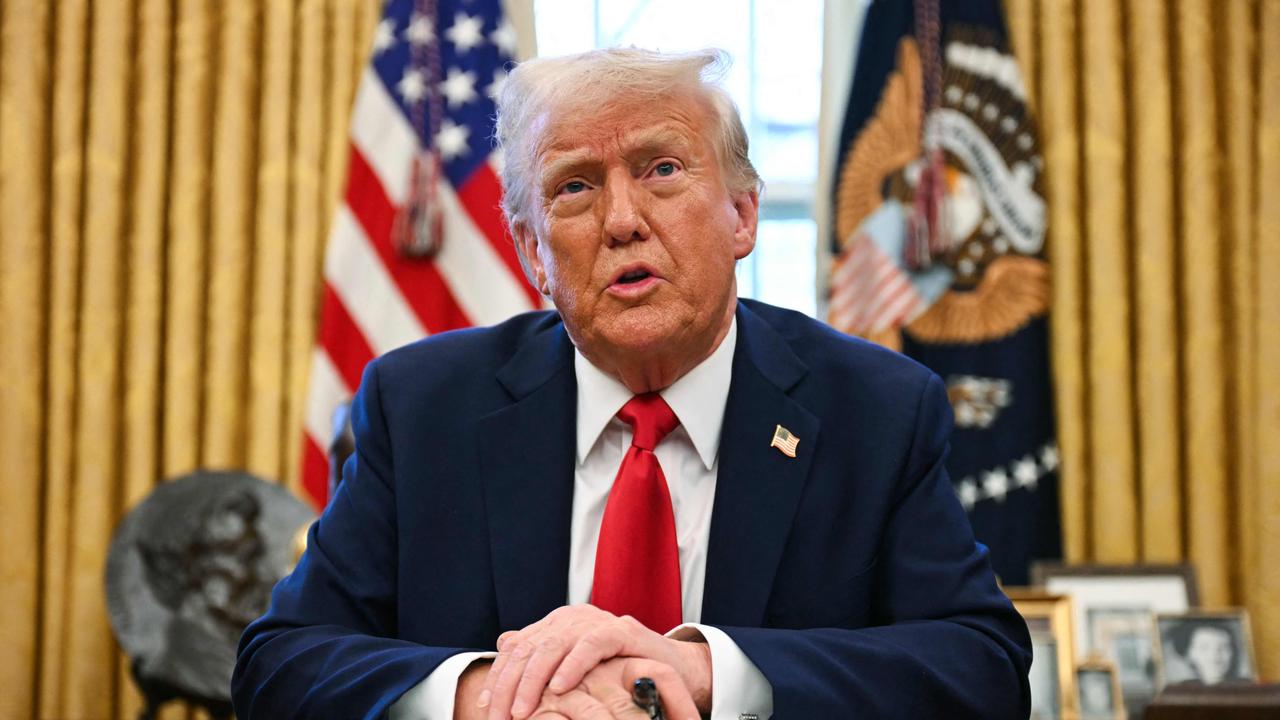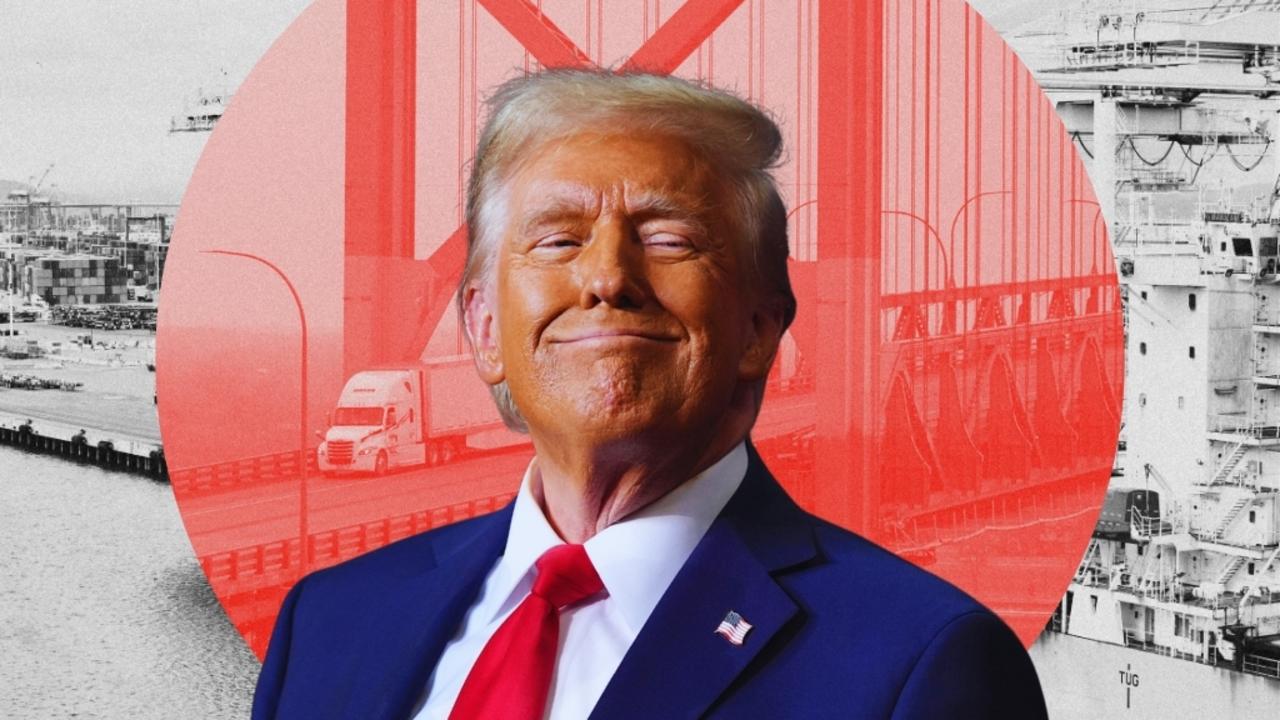Troops, blockades and an eerie quiet in locked-down capital
Thousands of armed troops and miles of barricades in Washington are drawing comparisons with Baghdad’s ‘Green Zone’.
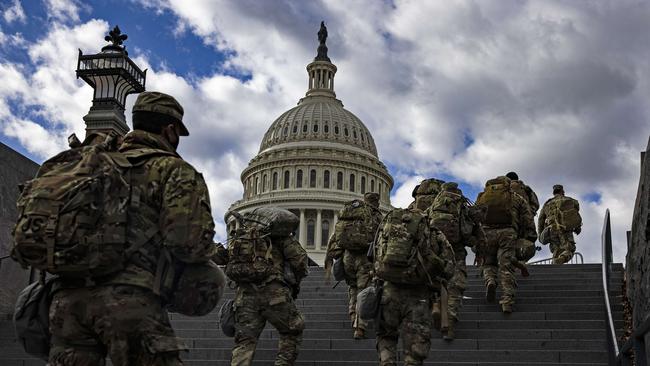
The scores of crisp American and District of Columbia flags sailing above Pennsylvania Avenue are a traditional sign of a coming presidential inauguration.
This year, there are some new indicators: Thousands of armed troops and police officers, blocked-off streets and miles of barricade fencing. The bustle of the nation’s capital before an inauguration has been replaced with the eerie quiet of a city in lockdown.
The deadly January 6 attack on the US Capitol by supporters of President Trump has turned pre-inaugural Washington into a secured encampment, one that has drawn comparisons with Baghdad’s Green Zone where foreign embassies are located.
The newly fortified nation’s capital — also beset by the continuing coronavirus pandemic — saw little activity the weekend ahead of the transfer of power to President-elect Joe Biden.
The visible security measures appeared to have dissuaded supporters of Mr Trump and extremist groups from piling into the District on Sunday as intelligence trackers said they had been planning for weeks. Reports showed the possibility of violent uprisings on Capitol Hill and at state capitols around the country, prompting extra vigilance.
There were few signs of organised pro-Trump protests on Sunday, despite online chatter about possible gatherings.
One march advertised on an online messaging platform, which called for an armed procession from the Washington Monument to the White House, had failed to materialise as of Sunday afternoon.
The planned venues were behind heavily fortified fencing and guarded by groups of federal law enforcement, including Secret Service and US Customs and Border Protection. A few dozen people gathered at Black Lives Matter Plaza, just north of the White House, waving flags and condemning the riot at the Capitol.
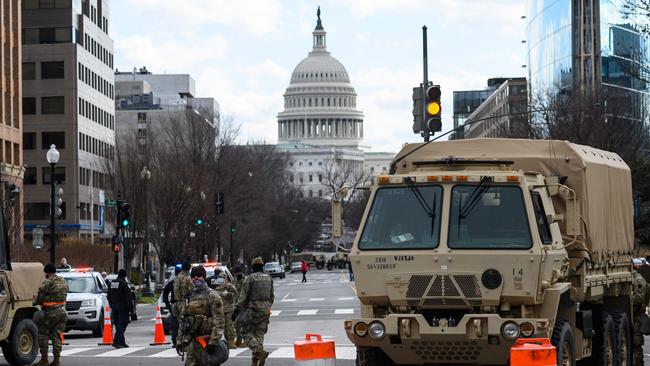
“While we’re concerned about being an occupied city, we also feel good that the cavalry has come to our rescue to push back,” said James Holloway, 68, of Hyattsville, Maryland, who travelled into the city to witness the aftermath of the Capitol siege.
For the days ahead, Mr Biden’s aides are closely monitoring threats and meeting with national security and law enforcement leaders with the goal of having the new president take the oath of office on Wednesday at the west front of the US Capitol.
“That is certainly our plan. I think that will send an incredibly important visual image to the world about the resilience of American democracy,” Mr Biden’s incoming White House communications director, Kate Bedingfield, said Sunday on ABC’s “This Week.” But Washington remains on edge amid unprecedented domestic threats that grew out of months of repeated false claims by Mr Trump and his allies that Mr Biden hadn’t won a fair election in November. Mr Trump also faces a Senate impeachment trial in the coming days over claims he incited violence.
On Friday, Capitol Police arrested a Virginia man at a Capitol checkpoint who had driven up with an armed handgun, more than 500 rounds of ammunition and what they called an unauthorised presidential inauguration credential. Wesley Beeler, 31, was released Saturday on his own recognisance and said he had gotten lost on his way to a security job in the District and had no ill intentions.
Bus stops throughout the District display FBI posters “seeking information about violence at the US Capitol.” Several House committees are beginning to investigate why law enforcement was caught flat-footed ahead of the Capitol siege despite online discussions about violent intent.
Ahead of the inauguration, local and federal law-enforcement leaders are bracing for the possibility of more violence from extremists inspired by the attack on the Capitol, with federal agencies sending to Washington additional manpower, including hundreds of agents, explosives techs, tactical teams, bomb dogs and other resources.
“It reminds me of visiting Baghdad, going into the Green Zone and seeing so much military presence and barricades,” Rep. Adam Schiff (D, Calif.), chairman of the House Intelligence Committee, said on CBS’s “Face the Nation” on Sunday. “I never thought I would see that in our own capital, or that it would be necessary.” While the presence of heavily armed agents and troops may deter some protesters, law-enforcement officials said they were seeing a disturbing jump in online communication among far-right groups threatening to target the Capitol.
Federal Bureau of Investigations Director Christopher Wray said last week the bureau was tracking an “extensive amount of concerning online chatter,” but noted that law-enforcement officials routinely struggle to “distinguish what is aspirational versus what is intentional”.
Many in Washington, including lawmakers, have stepped up their personal security measures.
Rep. Peter DeFazio (D, Ore.) said in an interview that the Democratic House caucus last week received “the most chilling security briefing I’ve ever had” in his three decades in Congress.
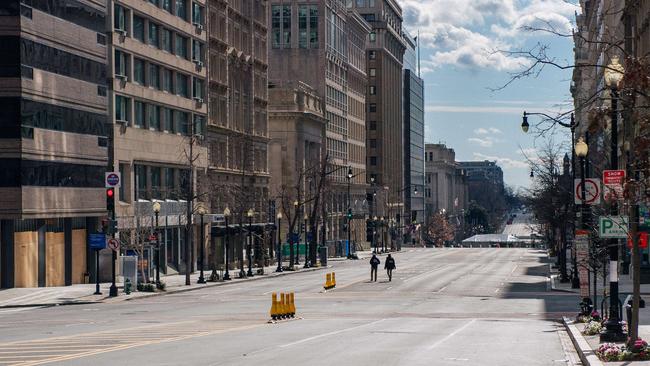
Mr DeFazio said he now carries a can of bear spray at all times and stores another one in his office. “These people are dangerous,” he said.
Rep. Peter Meijer (R, Mich.), a new congressman who voted to impeach Mr Trump for inciting the Capitol violence, said on MSNBC that he planned to alter his daily routines because he feels that his life is in danger.
And while Mr Biden’s team aims to preserve some of the inaugural traditions — including the swearing-in ceremony and inaugural address outside the Capitol — others, such as the inaugural parade along Pennsylvania Avenue, are being scuttled.
In place of what is usually an hours-long event that draws thick crowds along both sides of the street, Mr Biden and his family will be escorted by all of the military branches and their bands from 15th Street to the White House. A “virtual parade” will follow, which people can watch on television and online.
Rep. Josh Gottheimer (D, N.J.), who was a speechwriter for former President Bill Clinton, said in an interview that Mr Biden faces a daunting challenge in striking the right tone with his remarks, particularly given the unusual environment that awaits him.
“It is going to be shocking to look toward the Lincoln Monument and see no people where you normally see a sea of people as part of the pageantry,” he said. “Right now, things are at a very low point.” Elsewhere on Sunday, there were sparsely attended political protests at a few heavily guarded state capitals around the country.
The largest gatherings, in Ohio and Michigan, numbered in the dozens, with some pro-Trump demonstrators carrying long rifles in areas where permitted.
Heavily fortified state Capitol buildings in Florida and Georgia were almost entirely absent of protesters.


